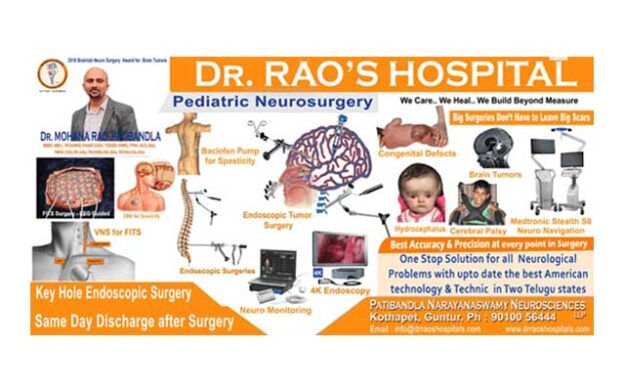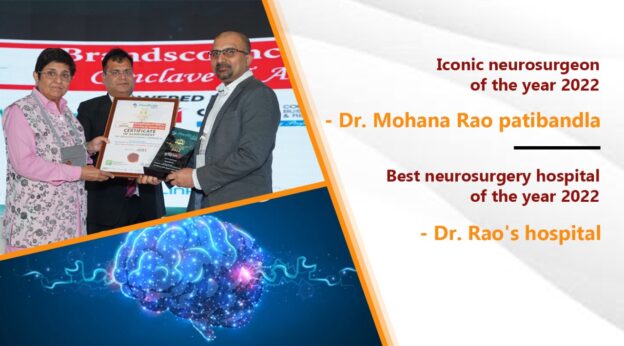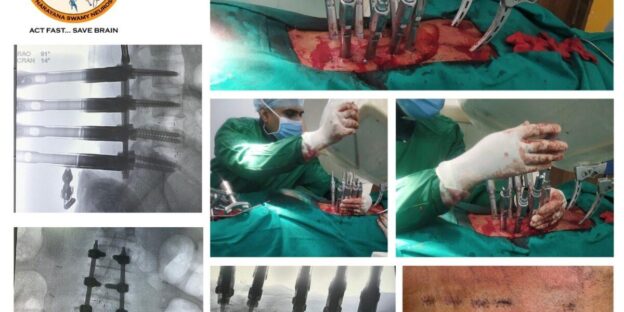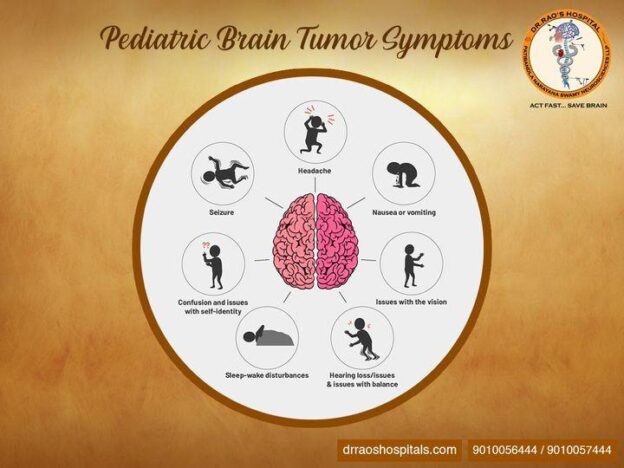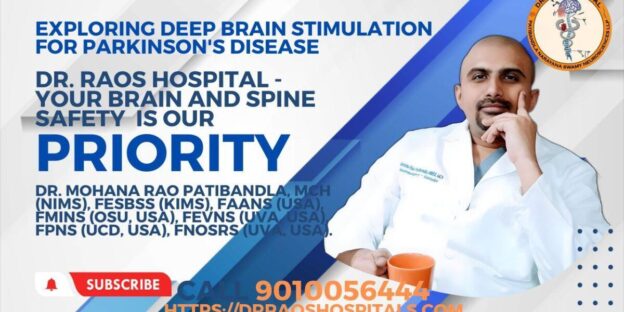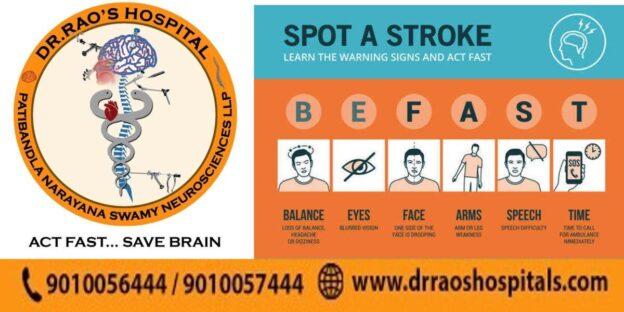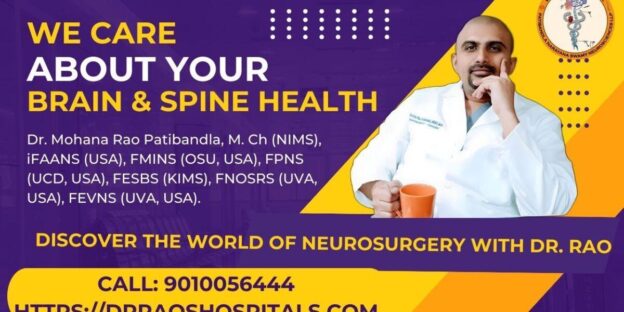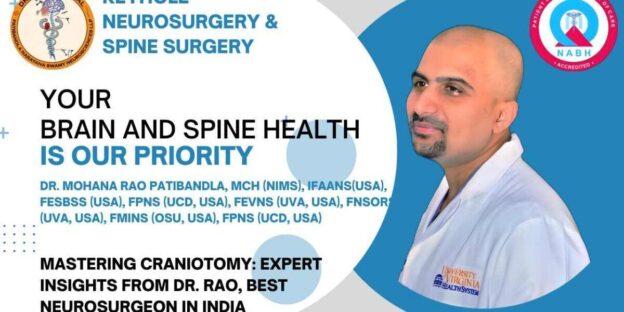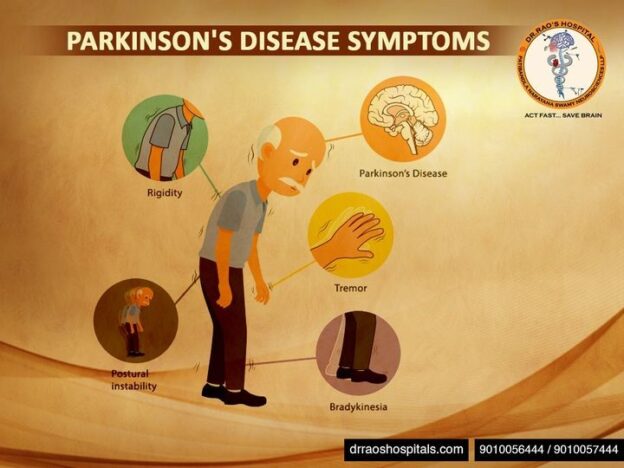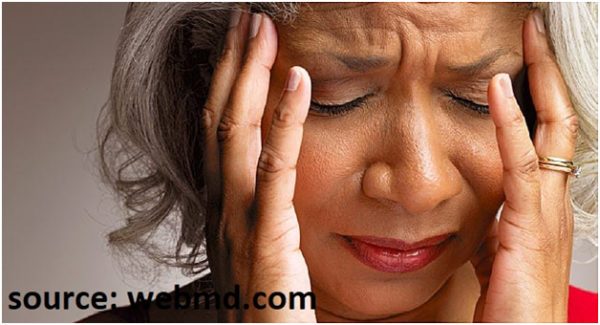Pediatric Brain Development: Insights into Neurological Disorders in Children
Introduction
Brain development is a complex and intricate process that begins before birth and continues throughout childhood. During this critical period, various factors can impact the formation and function of the brain, leading to neurological disorders in children. In this blog, we will delve into the fascinating world of pediatric brain development, exploring the different stages, milestones, and potential disruptions that can occur. We will also highlight the exceptional care provided at Dr. Rao’s Hospital, recognized as the best neurosurgery center in India, and the expertise of Dr. Rao, the leading pediatric neurosurgeon.
Understanding Pediatric Brain Development :
We will provide an overview of pediatric brain development stages, from embryonic development to infancy, early childhood, and adolescence. By understanding the intricate processes involved, we can gain insights into the vulnerabilities and potential impacts on neurological health.
Common Neurological Disorders in Children :
We will explore some of the most prevalent neurological disorders that affect children, such as epilepsy, cerebral palsy, developmental delays, and brain tumors. Each disorder will be discussed in detail, including its causes, symptoms, diagnostic methods, and treatment options.
Epilepsy in Children :
Epilepsy is a neurological disorder characterized by recurrent seizures. We will focus on epilepsy in children, discussing the unique challenges and considerations in diagnosis and management. We will explore the role of neurosurgery, including the potential benefits of surgical interventions in controlling seizures and improving quality of life.
Cerebral Palsy: Understanding and Management:
Cerebral palsy is a group of disorders that affect movement and posture. We will delve into the causes and risk factors associated with cerebral palsy and the multidisciplinary approach to its management. We will also highlight the role of neurosurgery in select cases, such as spasticity management and orthopedic interventions.
Developmental Delays and Neurological Disorders :
Developmental delays can indicate underlying neurological disorders in children. We will discuss the importance of early identification and intervention, emphasizing the need for comprehensive evaluations and tailored treatment plans. We will also explore the potential role of neurosurgery in specific cases, such as the correction of craniosynostosis or the treatment of hydrocephalus.
Brain Tumors in Children: Diagnosis and Treatment :
Brain tumors can occur in children, presenting unique challenges in diagnosis and treatment. We will discuss the different types of brain tumors seen in pediatric patients and the importance of timely detection. Treatment options, including surgical resection, chemotherapy, and radiation therapy, will be explored, highlighting the critical role of neurosurgery in tumor management.
Dr. Rao: Pioneering Pediatric Neurosurgical Care :
Dr. Rao, the best neurosurgeon in India, specializes in pediatric neurosurgery and is dedicated to providing the highest level of care to children with neurological disorders. His expertise, experience, and compassion make him a trusted figure in the field. Dr. Rao’s Hospital, renowned as the best neurosurgery center in India, has state-of-the-art facilities and a multidisciplinary team that works collaboratively to ensure the best possible outcomes for pediatric patients.
Holistic Approach to Pediatric Neurological Care :
We will emphasize the importance of a holistic approach to pediatric neurological care, encompassing medical interventions, rehabilitative therapies, psychological support, and family-centered care. Collaboration between healthcare professionals, parents, and caregivers is vital to promoting the child’s overall well-being.
Research and Development in Pediatric Neurosurgery:
As a result of ongoing research and development, pediatric neurosurgery is constantly evolving. We will explore some of the latest developments in the field, such as minimally invasive surgical techniques, advanced imaging modalities, and innovative treatment approaches. These advancements aim to enhance surgical precision, reduce invasiveness, and improve outcomes for pediatric patients with neurological disorders.
The Role of Rehabilitation in Pediatric Neurological Care
Rehabilitation plays a crucial role in the recovery and long-term management of children with neurological disorders. We will discuss the various rehabilitation strategies and therapies available, including physical therapy, occupational therapy, speech therapy, and cognitive rehabilitation. Dr. Rao’s Hospital recognizes the importance of a comprehensive rehabilitation program tailored to the unique needs of each child, promoting optimal recovery and functional independence.
Support for Families and Caregivers
Caring for a child with a neurological disorder can be emotionally and physically challenging for families and caregivers. We will emphasize the significance of providing support and resources for families, including educational materials, support groups, and counseling services. Dr. Rao’s Hospital takes a family-centered approach, recognizing the importance of addressing the holistic needs of the child and their support system.
Future Directions in Pediatric Neurosurgery
We will explore potential future directions in pediatric neurosurgery, including advancements in neuroimaging, genetic research, stem cell therapy, and neurostimulation techniques. These emerging research areas promise to enhance our understanding of pediatric neurological disorders and develop novel treatment modalities.
Conclusion
Pediatric neurological disorders require specialized care, expertise, and a compassionate approach. Dr. Rao, the best pediatric neurosurgeon in India, and the dedicated team at Dr. Rao’s Hospital provide comprehensive care for children with neurological conditions. From diagnosis to treatment and ongoing management, they focus on improving young patients’ and their families’ quality of life. With a commitment to innovation, research, and multidisciplinary collaboration, Dr. Rao’s Hospital continues to lead the way in pediatric neurosurgery, ensuring every child receives the best possible care.
Dr. Rao’s Contact Information:
- Phone: 9010056444, 9010057444
- Email: info@drraoshospitals.com
- Address: Old Bank St, GV Thota, besides AK Biryani Point, Guntur, Andhra Pradesh 522001
- Website: Dr. Rao’s Hospital
#PediatricNeurosurgery #PediatricBrainDevelopment #NeurologicalDisorders #ChildrensHealth #DrRao #DrRaosHospital #BestNeurosurgeon #India #ComprehensiveCare #InnovativeTreatmentApproaches #ResearchAdvancements #Rehabilitation #SupportForFamilies

